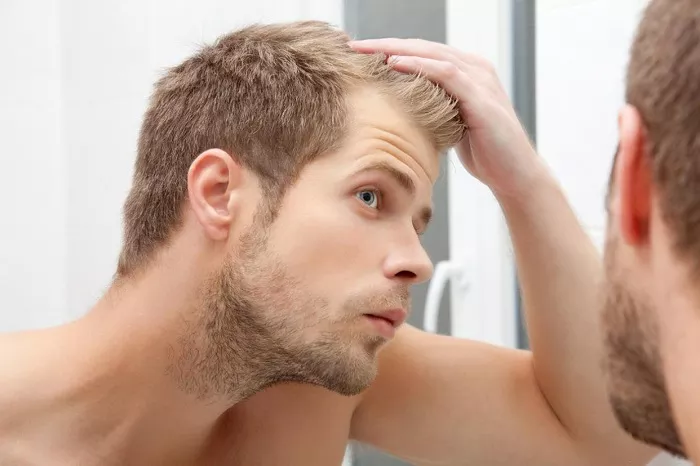If you’re a man noticing increased hair thinning or shedding, vitamin D deficiency might be part of the problem. While genetics and hormones often take the spotlight in male hair loss, emerging research suggests vitamin D may also play a role in keeping your hair healthy and strong.
Can Vitamin D Deficiency Cause Hair Loss in Men?
Yes — low vitamin D levels may contribute to hair loss, although the relationship isn’t fully understood. Research shows vitamin D is involved in hair follicle cycling, particularly the anagen (growth) phase. Without enough vitamin D, follicles may struggle to grow healthy hair, leading to thinning or patchy loss.
A 2013 study found low vitamin D2 levels were linked to telogen effluvium (a type of temporary hair loss due to stress) and pattern hair loss in women.
Additional research has tied vitamin D deficiency to alopecia areata, an autoimmune condition that causes sudden hair loss in patches.
Although most studies focus on women or autoimmune conditions, some research also suggests a correlation between vitamin D deficiency and male pattern baldness, a condition largely driven by hormones like DHT (dihydrotestosterone).
Why Vitamin D Matters for Hair Growth
Vitamin D isn’t just about strong bones. It supports:
Immune function
Cell growth regulation
Inflammation reduction
Calcium absorption and bone maintenance
It also plays a role in activating hair follicles, which is crucial for generating new hair. Vitamin D receptors in the scalp are believed to help initiate new hair growth. Without enough of the vitamin, the hair cycle can be disrupted.
Symptoms of Vitamin D Deficiency
Many men don’t know they’re deficient. Common signs include:
Fatigue
Muscle weakness or cramps
Bone or joint pain
Slow wound healing
Mood changes (like depression or irritability)
Hair thinning or shedding
A simple blood test (25-hydroxy vitamin D) can determine your levels.
Who’s at Risk?
You may be more likely to be deficient in vitamin D if you:
Spend little time outdoors or wear heavy sunscreen
Have darker skin (melanin reduces vitamin D synthesis)
Are overweight or obese
Have digestive disorders like Crohn’s, celiac, or ulcerative colitis
Are older (aging reduces vitamin D production)
Take medications that interfere with absorption
Have liver or kidney conditions
Have had bariatric surgery
How to Treat Vitamin D Deficiency
If tests confirm low levels, your doctor might recommend:
Vitamin D3 supplements (dosage based on severity)
Sun exposure (10–30 minutes a day, depending on skin tone and location)
Vitamin D-rich foods, like:
Fatty fish (salmon, tuna, mackerel)
Egg yolks
Fortified dairy, cereals, and orange juice
Mushrooms and beef liver
Note: Always follow a healthcare provider’s guidance. Too much vitamin D can lead to toxicity, causing nausea, kidney issues, and heart rhythm problems.
Is Hair Loss from Vitamin D Deficiency Reversible?
In many cases, yes. If your hair loss is due to low vitamin D, correcting the deficiency may help stop shedding and stimulate regrowth — but it’s not instant. Some studies have shown improvement in hair growth after supplementation, especially when paired with treatments like minoxidil.
However, if you’re also experiencing male pattern baldness, vitamin D alone likely won’t reverse hair loss. You may need treatments like:
Finasteride (blocks DHT)
Minoxidil (stimulates hair growth)
Hair growth supplements (containing biotin, iron, zinc, etc.)
What to Do Next
If you suspect a vitamin D deficiency is behind your thinning hair:
See your doctor or a dermatologist — they can test your vitamin D levels and rule out other causes.
Discuss supplements or lifestyle changes — including time outdoors and dietary tweaks.
Explore proven hair loss treatments — especially if male pattern baldness runs in your family.
Early intervention is key. Addressing vitamin D deficiency could improve your overall health — and help you keep more of your hair.
Related Topics:
- Millennial Men Are Fueling the Unexpected Comeback of the Toupee
- Apple Cider Vinegar Emerges as an Affordable, Natural Hair-Care Remedy
- Laser by Aleya Sees Growing Demand for Inclusive Hair Removal as Cultural Perspectives Evolve


